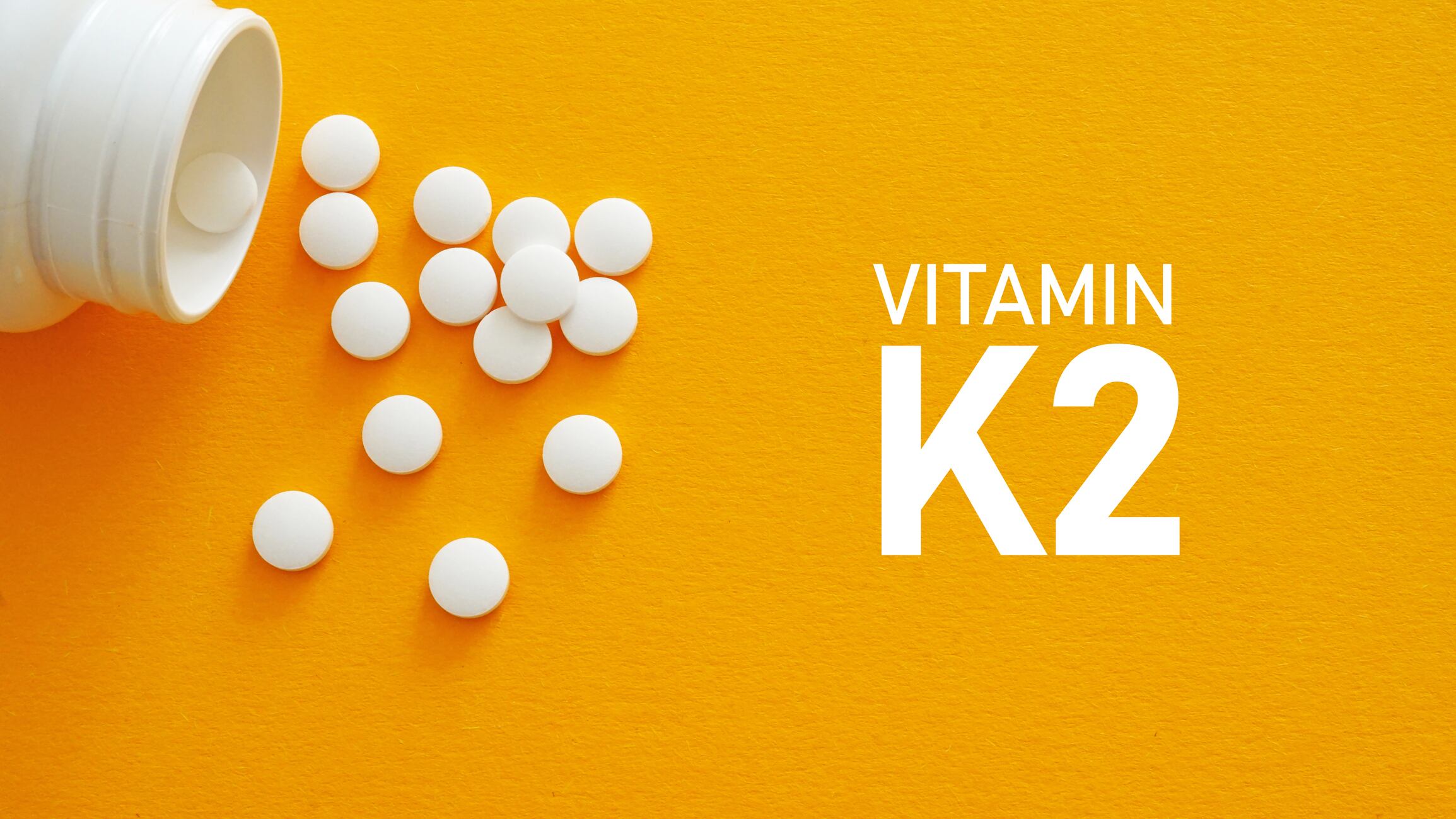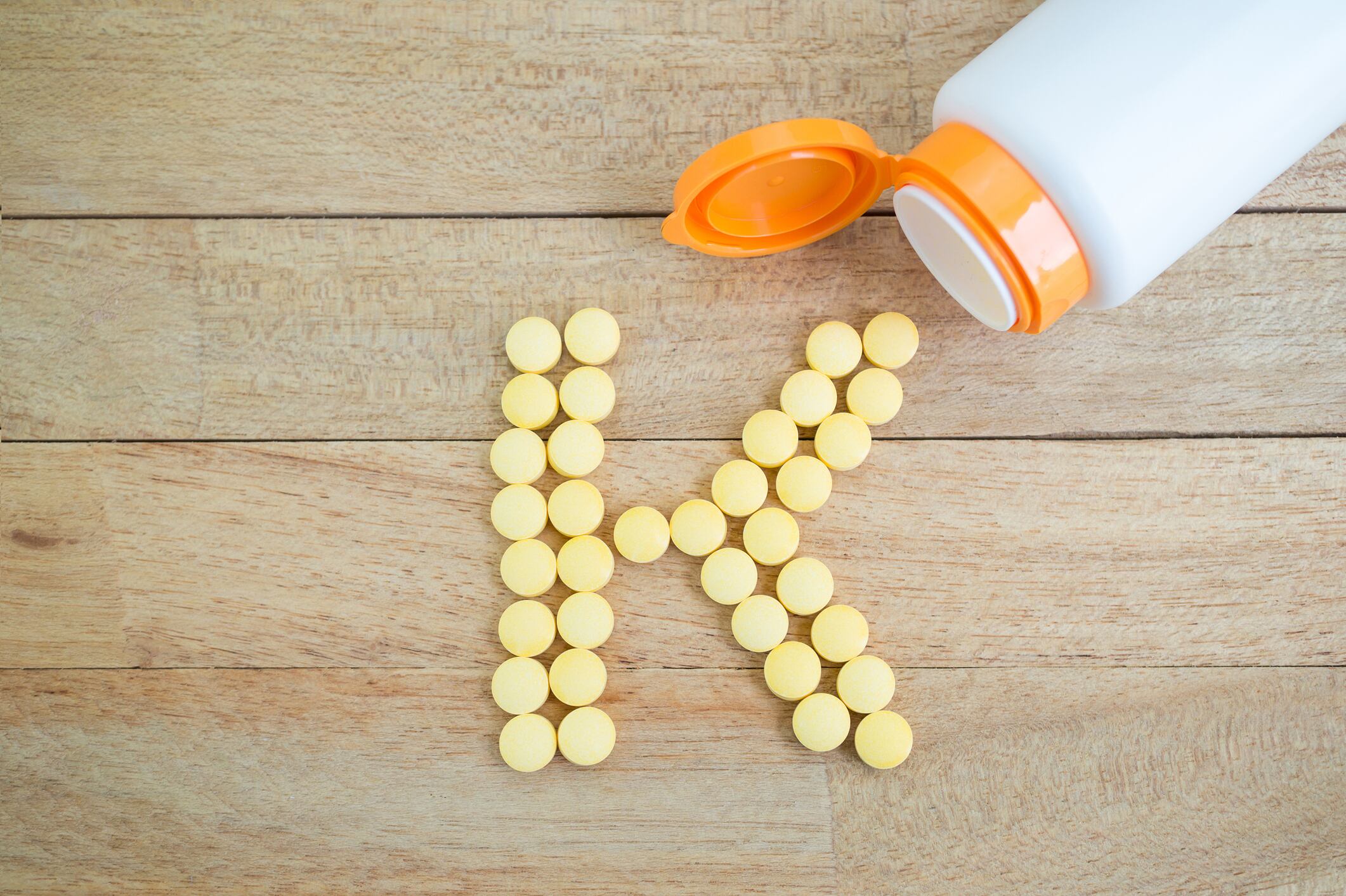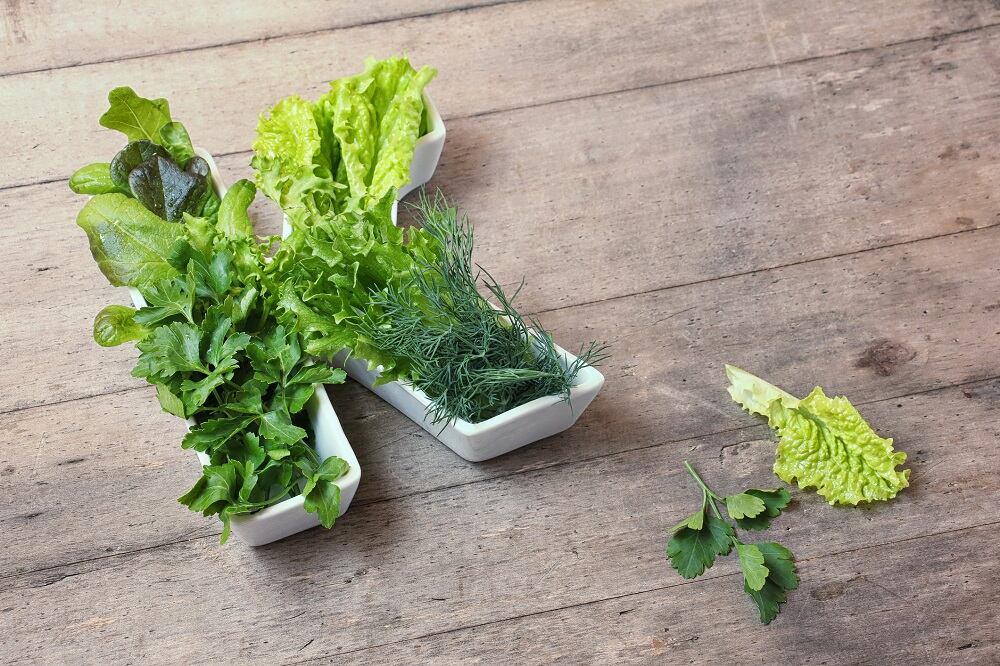The update to CRN’s Vitamin and Mineral Safety, 4th Edition replaces a single UL (upper limit) value for vitamin K, encompassing vitamin K1 and vitamin K2.
“CRN’s updated MK-7 chapter reflects our commitment to providing rigorous, transparent safety evaluations grounded in the totality of evidence,” said Andrea Wong, senior vice president, scientific and regulatory affairs at CRN, in a press release. “Establishing a HOI for Vitamin K2 (MK-7) represents a major step forward for scientific understanding and responsible product development across the dietary supplement category.”
Vitamin K
K1 is found in green leafy vegetables such as lettuce, broccoli and spinach and makes up about 90% of the vitamin K in a typical Western diet, while K2 makes up about 10% of Western vitamin K consumption and can be synthesized in the gut by the microflora.
Menaquinones (MK-n: with the n denoting the number of prenyl side chains) can also be found in the diet; MK-4 can be found in animal meat, MK-7, MK-8, and MK-9 are found in fermented food products like cheese. Natto, a fermented soybean paste, is a rich source of MK-7.
The bone health benefits of vitamin K2 are supported by multiple studies (many of the commercial vitamin K2 dietary supplements on the market are making bone-related structure-function claims in the US). The cardiovascular benefits of K2 have also been established, with the Rotterdam Study (published in 2004 in the Journal of Nutrition, Vol. 134, pp. 3100-3105) one of the first to show that adequate intake of menaquinone was associated with less aortic calcification and a lower risk of all-cause mortality.
Given the increasing consumer interest and use of vitamin K2 supplements worldwide, CRN conducted an assessment exclusively for vitamin K2 MK-7 from over 40 human clinical trials. The doses used in those studies ranged from 58 to 462 µg/day for periods up to two years.
“Across these trials, no serious adverse effects related to MK-7 were observed, and research consistently demonstrated no clinically meaningful impact on coagulation parameters in individuals not taking vitamin K antagonist (VKA) medications such as warfarin,” CRN stated.
The new HOI of 375 µg/day for supplemental MK-7 in adults does not apply to individuals using VKA anticoagulants.
‘A safe solution for some of the most pressing issues impacting global health’
Dr. Katarzyna Maresz, K2 expert and coordinator of the Gnosis Vitamin K2 Scientific Advisory Committee, told NutraIngredients that the new chapter confirmed vitamin K2 as MK-7 as a safe solution for some of the most pressing issues impacting global health.
“As a leading trade association, CRN has deep expertise in dietary supplement regulations and actively advocates on behalf of the industry and the value of supplementation,” she said. “It was gratifying to have the opportunity to consult with CRN during the development of this important chapter.”
The chapter also highlights the scientific necessity of ingredient standardization, purity and all-trans MK-7 consistency, Dr. Maresz said.
“Safety and efficacy conclusions are only meaningful when the active ingredient is well-characterized, consistent across batches and supported by robust clinical datasets,” she noted.
“Regulatory bodies around the world, including EFSA, Japanese FOSHU authorities and global health agencies, have similarly recognized the strong safety profile of vitamin K2, further reinforcing the appropriateness of HOI-based guidance.”
Dr. Maresz added that while the HOI is currently set at 375 mcg/day, Gnosis expects this value may increase soon.
“The HOI value is used because no adverse effects have been identified, and therefore, no UL exists,” she said. “From a risk-assessment perspective, the UL can be set when data show risks, whereas the HOI can be identified when available data does not show any adverse effects.”
For example, an ongoing study using MenaQ7, the vitamin K2 MK-7 ingredient from Gnosis by Lesaffre, in peritoneal dialysis (PD) patients in Greece is using 1,000 mcg/day, with data expected in 2027.
Dr. Stacey Smith, senior medical science liaison with Gnosis by Lesaffre, who was a key contact supporting CRN, said: “MenaQ7 vitamin K2 has been extensively studied and consistently shows a strong safety and tolerability profile across different ages, health conditions and dose ranges. With new clinical data expected soon, we are proud to be not only the pioneers of K2 research, but also the innovators leading its continued scientific and clinical development.
“Ultimately, this chapter represents a major step forward in supporting responsible industry practices, expanding understanding of vitamin K2 safety and equipping manufacturers, clinicians and regulators with the science needed to guide safe and effective product development. This chapter denotes CRN’s central role in developing voluntary industry standards, guidelines and best practices. It was our pleasure and honor to align with CRN to bring these invaluable insights to light.”




